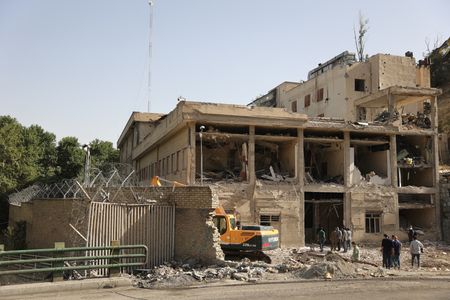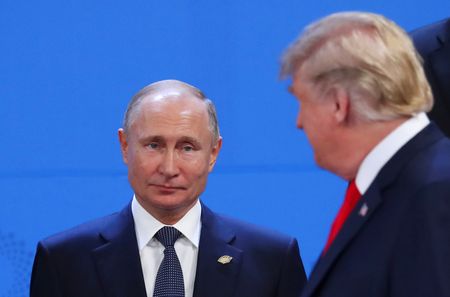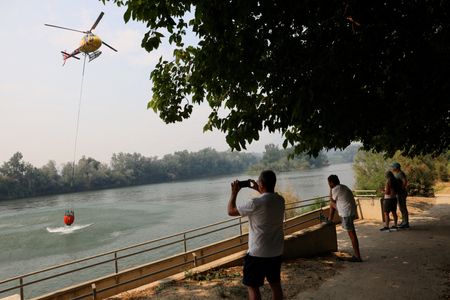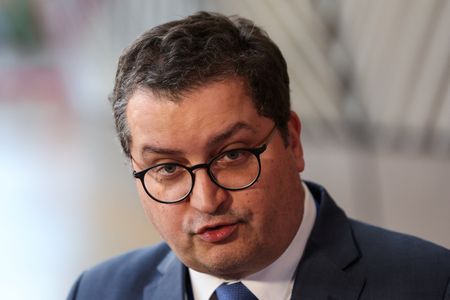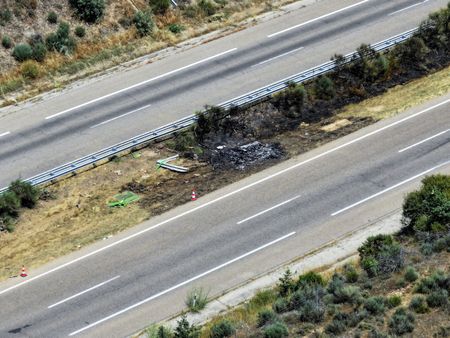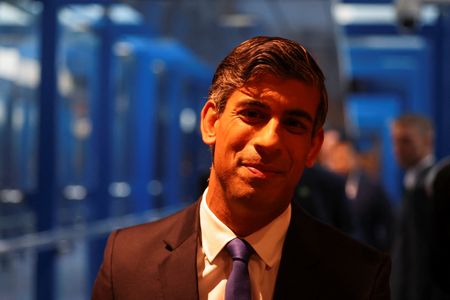By Samia Nakhoul
DUBAI (Reuters) -When they met on Monday, U.S. President Donald Trump and Israeli Prime Minister Benjamin Netanyahu basked in the glow of their triumph over Iran. But the show of unity masked a divergence over their endgames in Iran, Gaza and the wider Middle East.
Both leaders have touted the success of last month’s strikes on Iran’s nuclear infrastructure, declaring they had set back a programme they say is aimed at acquiring a nuclear bomb.
Yet, with intelligence assessments suggesting that Iran retains a hidden stockpile of enriched uranium and the technical capacity to rebuild, both Trump and Netanyahu know that their victory is more short-term than strategic, two diplomats say.
Where they diverge is on how to further pressure Iran, the diplomats said. Trump says his priority is to lean on diplomacy, pursuing a limited objective of ensuring Iran never develops a nuclear weapon – a goal Tehran has always denied pursuing.
In contrast, Netanyahu wants to use more force, a source familiar with the Israeli leader’s thinking said, compelling Tehran — to the point of government collapse if necessary — into fundamental concessions on quitting a nuclear enrichment programme seen by Israel as an existential threat.
The divide over Iran echoes the situation in the Gaza Strip.
Trump, eager to cast himself as a global peacemaker, is pushing for a new ceasefire between Israel and Hamas in the Palestinian territory, but the contours of any post-war deal remain undefined and the endgame uncertain.
Netanyahu, while publicly endorsing ceasefire talks, says he is committed to the total dismantling of Hamas, a strategic ally of Iran. The Israeli prime minister wants the remaining Hamas leadership deported, possibly to Algeria — a demand Hamas flatly rejects. The gap between a temporary pause and a lasting resolution remains wide, two Middle East officials say.
On Iran, Netanyahu was displeased to see Washington revive nuclear talks with Tehran expected in Norway this week, the first diplomatic overture since the strikes, said the person familiar with his thinking. He opposes any move that could give the Iranian authorities an economic and political lifeline.
THE LIBYA MODEL
Netanyahu wants nothing less than the Libya model for Iran, the source said. That means Iran fully dismantling its nuclear and missile facilities under strict oversight, and renouncing uranium enrichment on its soil even for civilian needs.
Israel is seeking not diplomacy but regime change, Western and regional officials have said. And Netanyahu knows he needs at least a green light from the White House — if not direct backing — to carry out further operations if Tehran refuses to relinquish its nuclear ambitions, they said.
But Trump has different objectives, the diplomats said. After the June strikes, he sees an opportunity to press Iran to cut a deal and seize a grand diplomatic feat of restoring ties with Iran that has long eluded him, the diplomats said.
On Monday, Trump said he would like to lift sanctions on Iran at some point. And in an eye-catching post on X suggesting Tehran sees economic ties as a potential element in any deal, President Masoud Pezeshkian said on Monday that Supreme Leader Ayatollah Ali Khamenei believed American investors can come to Iran with “no obstacles to their activities”.
Iranian rulers, however, face two unpalatable options: renewed strikes if they do not surrender their nuclear ambitions and humiliation at home if they do. That means they may try to make talks drag out, unwilling to fully quit their nuclear project and presenting a difficulty for a U.S. president impatient for a deal and its economic benefits for the U.S., Western and regional officials say.
For Israel, the fallback option is clear, the person familiar with Netanyahu’s thinking said: a policy of sustained containment through periodic strikes to prevent any nuclear resurgence. In the wake of its air war against Iran, Israel has reasserted itself as the region’s unrivalled military power, more willing than ever to use force and more capable of doing so with precision and relative impunity.
Washington, meanwhile, is hedging its bets. While Israeli and U.S. hawks still hope for regime change in Tehran, Trump appears unwilling to shoulder the huge military, political and economic costs that such a project would demand.
Trump rapidly claimed victory after the U.S. attack. And while he has said he would consider bombing Iran again if it continued to enrich uranium to worrisome levels, he has portrayed the June 22 operation as a bold, surgical one-off.
NO BOOTS ON THE GROUND
His repeated declarations that Iran’s program has been “obliterated” are less triumph than warning: don’t ask for more — a signal that he’s done enough and won’t be drawn further in, says Alex Vatanka, director of the Iran Program at the Middle East Institute think-tank in Washington.
For all their rhetoric, Netanyahu and his hawkish allies offer no viable blueprint or roadmap for regime change, says Alan Eyre, a former U.S. diplomat and Farsi-speaking expert on Iran. Unlike Iraq, there are no boots on the ground and no credible opposition that could topple the ruling elite, guarded by the powerful Islamic Revolutionary Guard Corps.
The U.S. may support Israel’s military actions, even supplying advanced weaponry, but it is betting mainly on economic pressure and diplomatic leverage to force Tehran’s hand. The result is a fragile standoff, with no clear endgame, the diplomats said.
Netanyahu sees a fleeting strategic opportunity, one that demands acceleration, not hesitation, the source close to him said. In his calculus, the time to strike harder is now, before Iran regains its footing, the source said.
Iran’s air defences are battered, its nuclear infrastructure weakened, its proxies decapitated and its deterrence shaken. But Tehran’s window to regroup and rebuild will grow with time, says the person familiar with Netanyahu’s thinking.
So for Netanyahu, this is unfinished business — strategic, existential, and far from over, the diplomats and the two Middle East officials said.
(Writing by Samia Nakhoul; Editing by David Gauthier-Villars and William Maclean)

